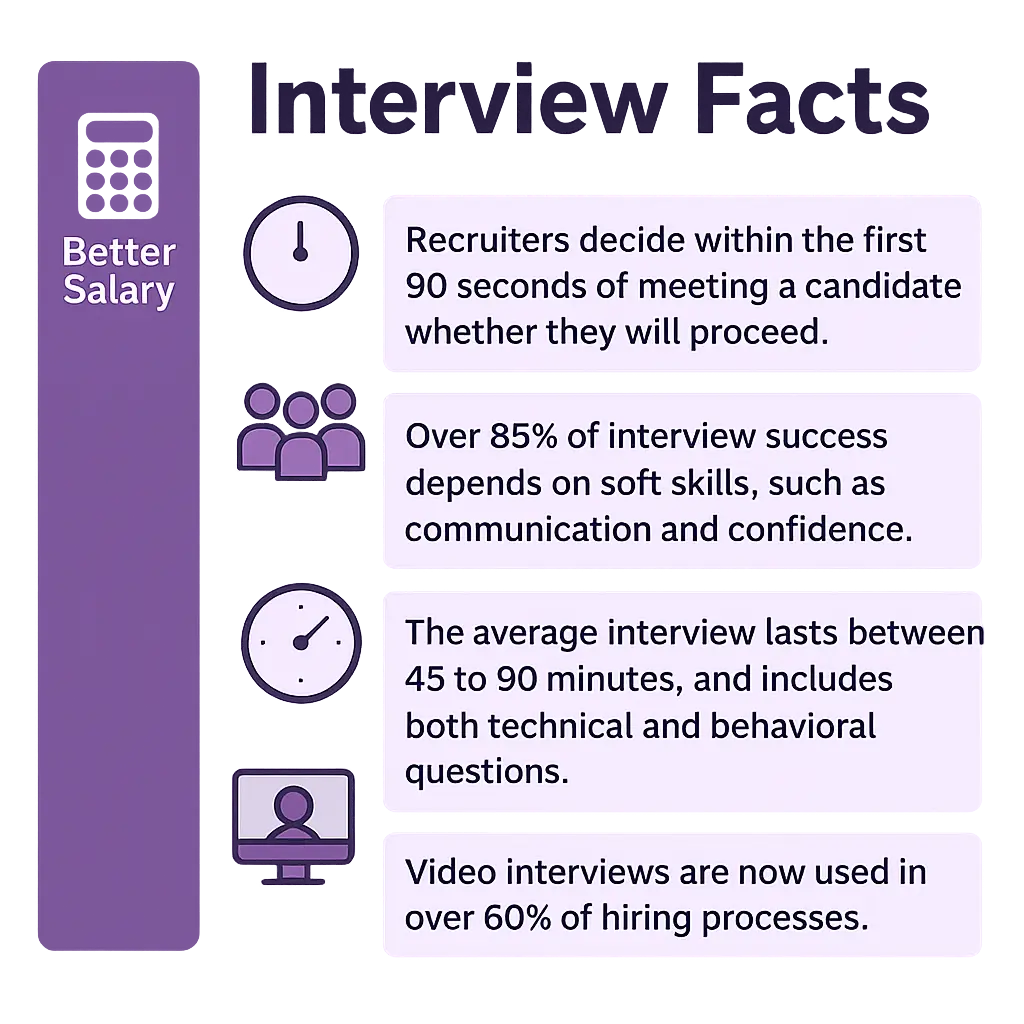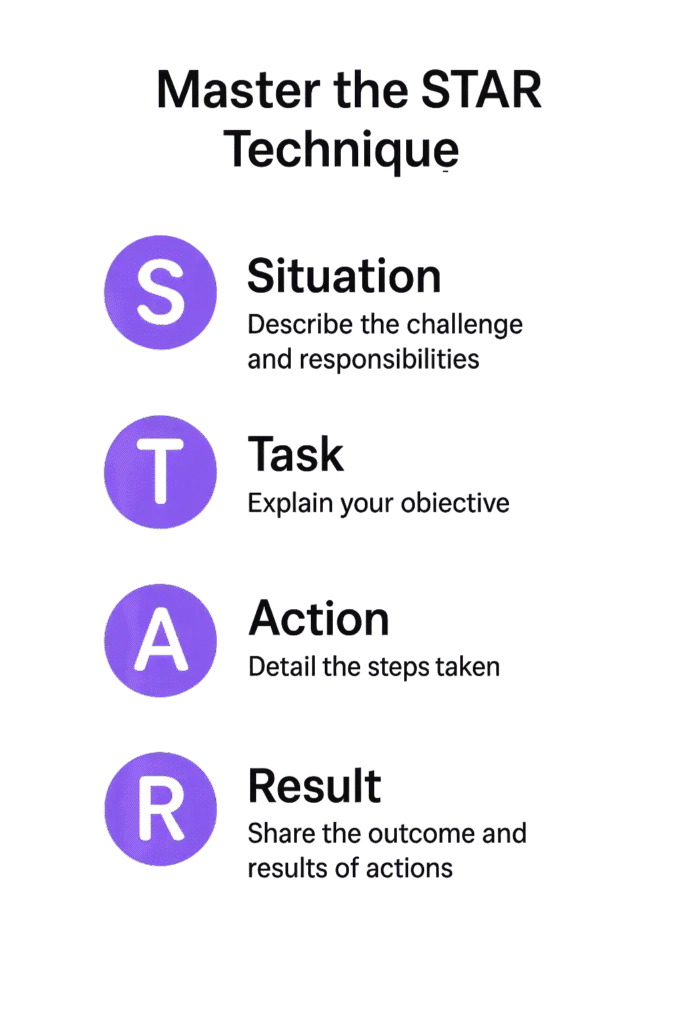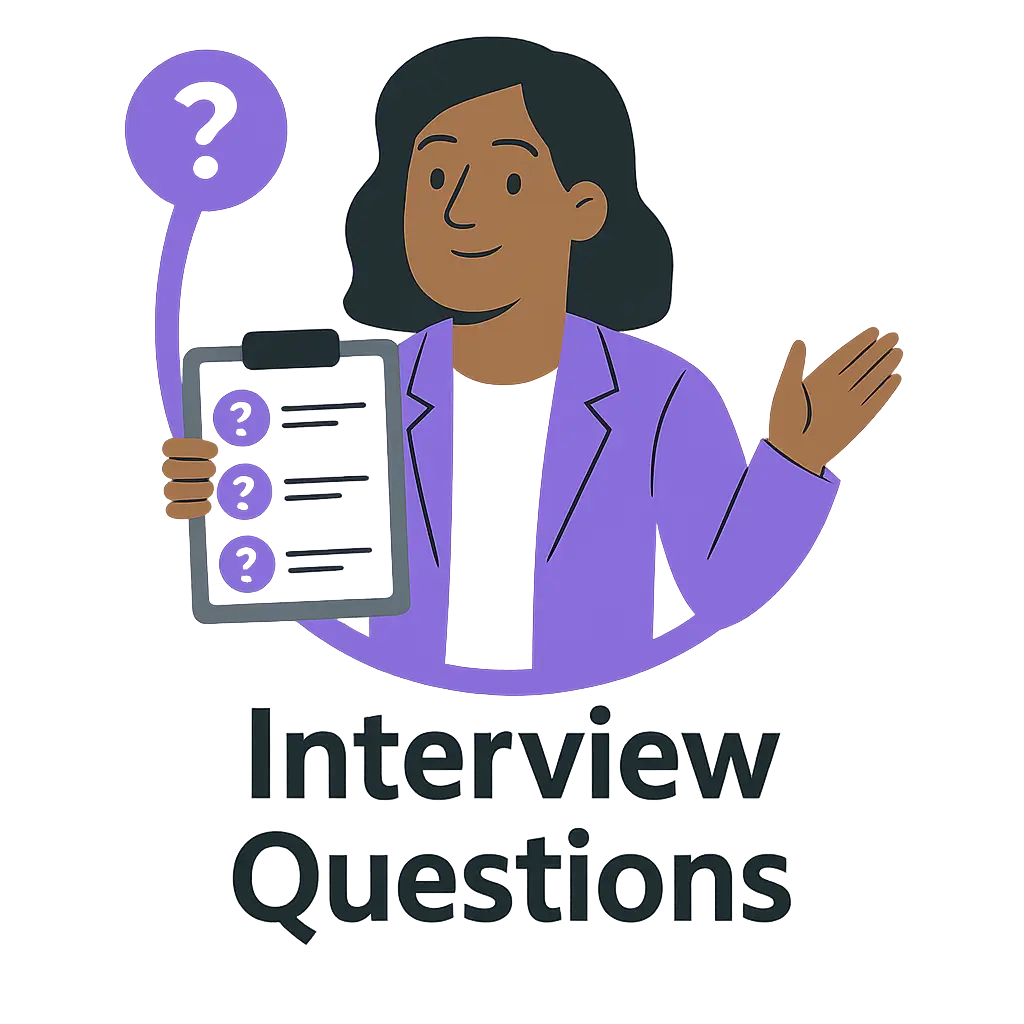Interview Questions
Preparing for an interview goes far beyond rehearsing a few common questions. In today’s competitive job market, standing out means knowing the types of questions you’ll be asked, how to approach them, and how to showcase your value clearly and confidently.
Hard Interview Questions (and How to Answer Them)
These are designed to test your composure, creativity, and problem-solving ability:
If you were an animal, what would you be and why?
“I’d be a border collie — focused, highly adaptable, and happiest when contributing to a team. They’re smart, loyal, and thrive on structure — much like how I approach projects.”
Describe a conflict you had with a coworker.
“I once worked with a teammate who kept missing deadlines. Instead of assuming the worst, I asked if everything was okay. Turns out they were unclear about their responsibilities. We clarified roles and things improved. I learned the value of early, empathetic communication.”

What would your previous manager say about you?
“My last manager described me as ‘reliable, calm under pressure, and someone who sees both the big picture and the small details.’ I still have the review if you’d like to see it.”
How do you handle stress or tight deadlines?
“I prioritize early, break down tasks into manageable steps, and focus on what matters most. For example, I created a checklist during a recent product launch that helped us meet every deadline without sacrificing quality.”
Interview Tips to Help You Stand Out
1. Customize Your Answers
Tailor every response to the specific job and company. Use the job description as a cheat sheet.
2. Master the STAR Technique
Structure behavioral answers as:
Situation
Task
Action
Result
3. Research the Company
Know their mission, recent news, values, and who they serve.
4. Bring Proof
Have a portfolio, data, or metrics ready to support your achievements.
5. Ask Impactful Questions
Examples:
“What are the biggest challenges facing the team?”
“How do you define success in this role?”
“What growth opportunities are available?”

How to Leave a Lasting Impression
Dress for the role and company culture.
Arrive early, in-person or online.
Send a thank-you email within 24 hours, referencing specific parts of the conversation.
Stay authentic. You want the right job for the real you.
Interviews are your chance to show you’re not just qualified—you’re a perfect fit. With preparation, practice, and a strategic approach, you can turn any interview into a compelling conversation that lands you the role.
Most common interview questions
These are classics for a reason—employers want to see how you think, what you value, and how you’ll fit in.
Tell me about yourself.
“I’m a detail-oriented digital marketing specialist with 5 years of experience in paid social and SEO. I’ve helped mid-sized brands grow through data-driven strategies, and I’m particularly drawn to roles where I can blend creativity with analytics. Outside work, I enjoy staying on top of trends and running a small blog focused on career growth.”
What are your strengths and weaknesses?
Strength: “I’m great at simplifying complex data into meaningful reports that help teams take action quickly.”
Weakness: “Earlier in my career, I struggled with delegating tasks, but I’ve learned that effective teamwork means trusting others while providing clear direction.”
Why do you want to work here?
“I admire how your company combines innovation with a strong commitment to employee development. I’ve read about your recent product launch and the user-first approach resonates with how I approach strategy — I’d love to be part of a team shaping meaningful experiences.”

Why should we hire you?
“Because I bring a blend of hands-on technical skills and strategic thinking. I’ve driven measurable growth in previous roles and thrive in fast-paced environments. I also align well with your culture of continuous improvement and collaboration.”
Where do you see yourself in 5 years?
“I see myself growing into a senior role where I can lead a small team, mentor junior colleagues, and help drive high-impact projects. I want to stay hands-on while contributing to a wider vision.”
Describe a time you overcame a challenge.
“At my last job, our ad platform data went down just before a client presentation. I stayed calm, pulled backup reports from another tool, and adapted the presentation within the hour. The client appreciated the transparency and the quick turnaround.”
Tell me about a time you worked in a team.
“I was part of a cross-functional team launching a campaign. We had creative, analytics, and dev involved. I made sure we all had shared goals and clear communication, and as a result, we hit our KPIs and learned new ways of working together.”
What motivates you?
“Solving problems and seeing my work create real results. Whether it’s improving a conversion rate or helping someone make a smart financial choice, I get energy from outcomes.”
Why did you leave your last job?
“I learned a lot in my last role, but the scope for growth became limited. I’m now looking for a position where I can take on more responsibility, continue learning, and have a bigger impact.”
Do you have any questions for us?
“Yes, I’d love to know:
– What does success look like in this role after 6 months?
– How do you support team development and growth?”
What is your biggest failure?
“In my first leadership role, I didn’t provide enough structure to a new hire who ended up feeling overwhelmed. I took responsibility, restructured the onboarding process, and now I always ensure expectations and support are clear. That experience made me a much better leader.”
Hard Interview Questions (and How to Answer Them)
These are designed to test your composure, creativity, and problem-solving ability:
If you were an animal, what would you be and why?
“I’d be a border collie — focused, highly adaptable, and happiest when contributing to a team. They’re smart, loyal, and thrive on structure — much like how I approach projects.”
Describe a conflict you had with a coworker.
“I once worked with a teammate who kept missing deadlines. Instead of assuming the worst, I asked if everything was okay. Turns out they were unclear about their responsibilities. We clarified roles and things improved. I learned the value of early, empathetic communication.”
What would your previous manager say about you?
“My last manager described me as ‘reliable, calm under pressure, and someone who sees both the big picture and the small details.’ I still have the review if you’d like to see it.”
How do you handle stress or tight deadlines?
“I prioritize early, break down tasks into manageable steps, and focus on what matters most. For example, I created a checklist during a recent product launch that helped us meet every deadline without sacrificing quality.”
